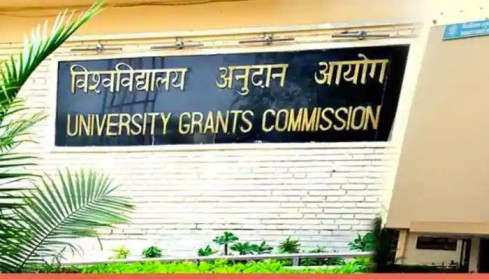The University Grants Commission has made it mandatory to appoint representatives from the Schedule Castes, Schedule Tribes, Other Backward Classes, and women either as chairperson or members of students grievance redressal committees.
The UGC (Redressal of Grievances of Students) Regulations, 2023, which will replace the 2019 guidelines, were notified on April 11 and have been aligned as per the new National Education Policy.
The commission on Thursday asked all higher education institutions to comply with the new norms that seek to provide opportunities for the redressal of grievances of students already enrolled in any institution, as well as those seeking admission to such institutions.
According to the revised guidelines, at least one member of the student's grievances redressal committee or its chairperson shall be a woman and at least one member or the chairperson shall be from the SC, ST or OBC category.
"Student's Grievance Regulations, 2023, provide an additional forum for redressal of complaints against caste-based discrimination. These regulations do not replace other regulations/guidelines made/issued by the UGC from time to time to ensure that no student is discriminated against on the basis of caste, creed, religion, language, ethnicity, gender or disabilities," said UGC Chairman Jagadesh Kumar.
Like the 2019 regulations, the UGC has retained student redressal committees that will entertain the complaints of alleged discrimination of students belonging to the SC, ST, OBC, minorities, persons with disabilities categories or women.
The new guidelines have also retained the provision of appointment of an ombudsperson for redressal of grievances of students of a university and colleges/institutions affiliated with a university. The ombudsperson shall be a retired vice-chancellor/retired professor with 10 years of experience or a former district judge.
Except for the headline, this story has not been edited by The Telegraph Online staff and has been published from a syndicated feed.










